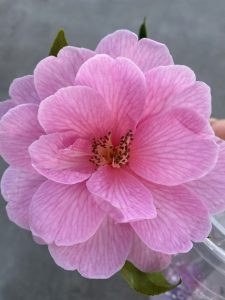Dear ENGL 301 Team,
After another successfully completed unit, I write this Unit Two Reflection blog post. I reread my Unit One Reflection and realized that I have experienced growth in the writing process. This reflection will explain and clarify my experience with LinkedIn, the Formal Report Proposal assignment, and the peer reviews.
Writing Process
After completing these last few assignments and receiving feedback, I realized how much I have learned about my own writing and my peers’. Frankly, it was great to learn a few facts about networking on LinkedIn. I already have a LinkedIn, but I never really researched networking specifically. I will edit my own profile and adjust it to improve my image and exposure to other users. I have been making more comments on articles lately. I also constantly adjust my work experiences and interests to reflect a genuine, authentic personality.
While I was brainstorming for my formal report proposal outline and memos, I was afraid to be wordy. It is one of the main errors I make in writing. This was also a concern I stated in my Unit One reflection. Regarding a valid problem, I had one prepared all this time. It is as if it came “handy” to be addressed in a course I am taking. I always felt like there is a lack of opportunities for psychology majors in general. Therefore, finding a problem and solutions was not difficult. However, I had thoughts about whether it will be feasible. Additionally, I struggled a little with finding a proper audience because the scope of making changes was more than one society. After Dr. Paterson’s feedback and the peer review, I finetune the proposal’s audience excellently. Lastly, I feel satisfied with the proposal’s progress. I created a professionally written survey with an ethical introduction for the first time. I fixed the audience and the wordiness of my initial memo. I also will remember to title my attachments more properly next time. I feel like I have enough guidance from Dr. Paterson and my peers. My writing is shifting from extremely unclear and messy to less wordy and more concise.
Peer Review Process
As I read my peers’ work, I learn more about writing styles. Everyone has a certain tone or writing style they have. Lately, I find that I can easily pinpoint errors in my peer’s writing more than I used to. I also see strengths and areas they can improve more readily. Thanks to the feedback I received, I have seen changes in my initial writing in any type of writing I do. Grammarly detects fewer grammatical errors. I can immediately find errors in my own writing before Grammarly tells me. I can fix my own wordiness quickly. The peer-review process, alongside Dr. Paterson’s comments, has helped me reduce wordiness, improve attachment titling, reduce imperatives and avoid overutilizing pronouns. I also avoid negative tones. Peer reviewing allows me to see frequently made mistakes from a classmate’s perspective. I also improved my peer review organization. Overall, I have learned a lot about others’ writing and my own incredibly in this unit.
Revisions
I have created an excellent formal report outline. Also, I have revised my formal report proposal according to the peer review done by Claire Flater. The main concerns were wordiness and fine-tuning the needs/problem. In my revision, I have fixed the wordiness and problem. Now, the problem focuses on the lack of job and networking opportunities for psychology students at UBCV.
Revisions and outline can be found here:
- 301 Amela Sejdic Revised Formal Report Proposal
- 301 Amela Sejdic Formal Report Outline
- Claire Flater’s Peer Review of Amela Sejdic’s Formal Report Proposal.

